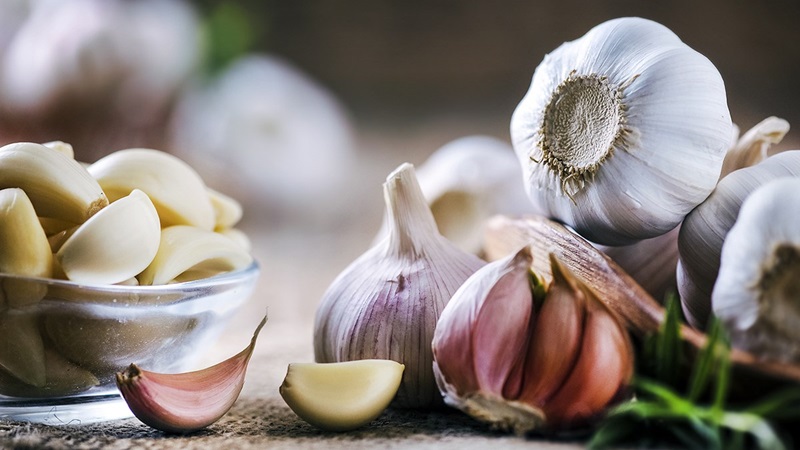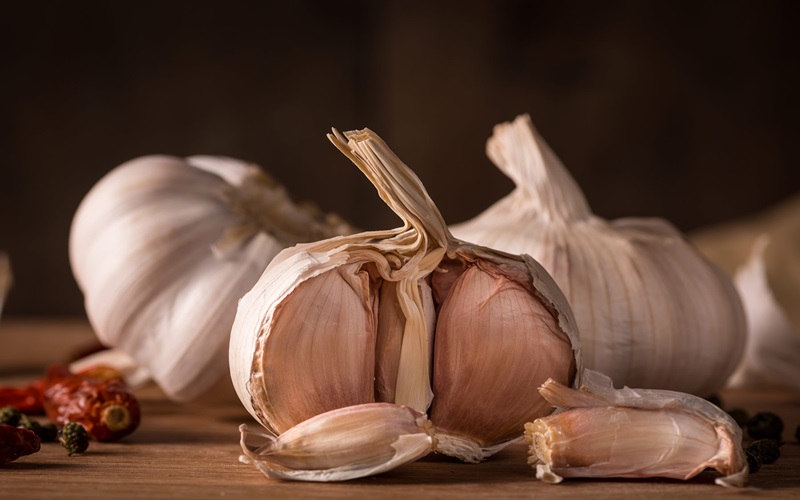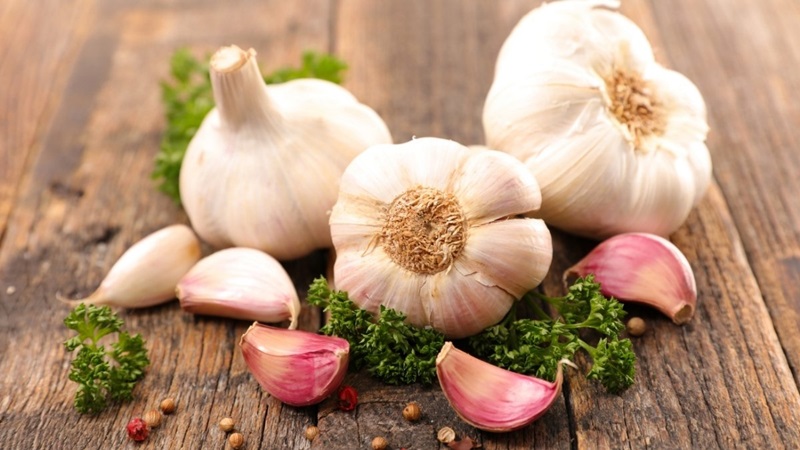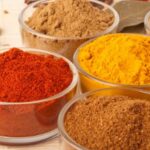Does eating garlic help lower blood fat? This is a question that many people ask, and in today’s article, let’s clarify the details about the effects of garlic and its relation to lowering blood fat!
1. Does Eating Garlic Help Lower Blood Fat?
 Can eating garlic help lower blood fat levels?
Can eating garlic help lower blood fat levels?
Garlic has been found to effectively lower blood fat. This conclusion is drawn from research conducted by scientists over 30 years ago, which revealed that consuming garlic can reduce blood fat levels. Here are some notable studies:
- According to the World Health Organization (WHO), adding garlic to your diet can lower total blood fat, LDL cholesterol, and triglycerides, thereby preventing atherosclerosis.
- A meta-analysis of 39 trials found that taking garlic for two months could reduce total cholesterol by an average of 17 points and LDL cholesterol by an average of 9 points in individuals with cholesterol levels of 200 mg/dL or higher.
- For diabetic patients, combining garlic with olive oil helps regulate cholesterol and triglyceride levels.
- Research on black garlic and garlic pills indicates that consuming garlic at a dose of 300 mg or 6 g per day for 4-12 weeks can lower cholesterol, triglycerides, and LDL cholesterol while increasing HDL cholesterol.
- Combining garlic with lemon or garlic with cilantro also helps lower blood fat levels and improve blood pressure readings, especially in hypertensive patients.
- Garlic also helps regulate blood pressure, boost immunity, reduce inflammation, promote heart health, and prevent cancer, while also improving endurance and exercise performance.
2. How to Lower Blood Fat with Garlic
 Methods to lower blood fat levels using garlic
Methods to lower blood fat levels using garlic
To effectively lower blood fat with garlic, consider the following methods of incorporating garlic into your diet:
- Combine garlic and cilantro in your meals: Eating garlic with cilantro enhances the flavor and health benefits of both foods.
- Use garlic and lemon juice: Consuming 4 cloves of garlic daily, along with a teaspoon of lemon juice, can provide health benefits.
- Add garlic to your dishes: Fresh garlic can be added during food preparation, but avoid cooking at temperatures above 60°C as it may deactivate allicin, the beneficial compound in garlic. It is best to add garlic towards the end of cooking.
- Garlic soak for hypertensive individuals: Those with high blood pressure can prepare a garlic soak by crushing, grinding, and mixing garlic with water. Consume this mixture every morning and evening for 15 days, followed by a 3-day break.
- Garlic wine: Some sources suggest that garlic wine may help lower blood fat levels, but excessive consumption can be detrimental to health. Limit your intake to 1-2 glasses of garlic wine per day.
3. Should Garlic Be Consumed Daily?
 Should garlic be consumed on a daily basis?
Should garlic be consumed on a daily basis?
While garlic offers numerous health benefits and can effectively help lower blood fat levels, excessive consumption may lead to the following issues:
- Fatigue
- Headaches
- Dizziness
- Loss of appetite
- Muscle pain
- Allergic reactions such as asthma or rashes
Additionally, eating garlic can reduce the effectiveness of certain medications, such as blood thinners, making it harder for your blood to clot.
This article has provided insights into the effects of garlic on blood fat levels! We hope that through this article, you have gained valuable knowledge about garlic and its potential benefits for your health.





































